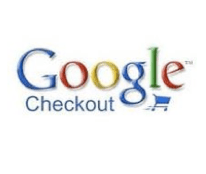 While Google’s payment system, Google Checkout, is not a giant in the online payments space, it is certainly not a failure, especially when compared to some of Google’s other product extensions. Launched in 2006, Google Checkout allows users to pay for an item using a preset log-in, similar to PayPal or Amazon Payments. The company claims that “hundreds of thousands” of merchants currently use Google Checkout. This seems modest compared to PayPal, which is growing by over 40 percent year over year, with total payment volume equaling $13.1 billion in Q2. While Google doesn’t reveal its transaction figures, it’s safe to assume that Checkout isn’t seeing nearly as much money flowing through its payment system as PayPal or even Amazon. But the landscape could look much differently if Google successfully makes three big plays.
While Google’s payment system, Google Checkout, is not a giant in the online payments space, it is certainly not a failure, especially when compared to some of Google’s other product extensions. Launched in 2006, Google Checkout allows users to pay for an item using a preset log-in, similar to PayPal or Amazon Payments. The company claims that “hundreds of thousands” of merchants currently use Google Checkout. This seems modest compared to PayPal, which is growing by over 40 percent year over year, with total payment volume equaling $13.1 billion in Q2. While Google doesn’t reveal its transaction figures, it’s safe to assume that Checkout isn’t seeing nearly as much money flowing through its payment system as PayPal or even Amazon. But the landscape could look much differently if Google successfully makes three big plays.
First, Google starts pushing Checkout with the launch of Google Games later this year. As we reported earlier in July, Google invested somewhere between $100 million and $200 million in social gaming giant Zynga, with part of the strategic deal including Zynga’s games in Google’s Games portal. And Google just bought Slide in an effort to boost its standing in the social games world. These moves give Checkout a platform to grow. According to an Inside Network report, the U.S. market for virtual goods will reach $1.6 billion in 2010 alone. Social gaming contributes $835 million of that number.
Zynga is making a killing on virtual goods and currently PayPal is reaping the benefits of this by powering payments for the social gaming giant. Zynga has been reported to be PayPal’s second largest merchant, behind eBay. PayPal has processed about $500 million in virtual goods payments in 2009 alone (though it’s unclear how many of the transactions related to Zynga games).
Clearly there is a lot of money to be made here. PayPal had a net income of $817 million in Q2. And with access to a more proven Google Checkout, Zynga could always consider negotiating a lower fee than they currently receive with PayPal (see fees) or make a deal for advertising, as it reportedly did with Facebook Credits.
Gaming is the obvious opportunity for Checkout, but the second is Places which Google has scaled to over 4 million businesses . Places lets local businesses claim and edit a page, post realtime updates (eg, “happy hour tonight”), create a custom QR code, and even offer coupons.
What’s missing here? A transaction. Why not blend Checkout with Places, and allow users to buy directly from the merchant? This seems like a logical and potentially lucrative next step. Yelp is reportedly starting to do this. Imagine if merchants could channel relevant search results to a one-click transaction, of course brokered by Google Checkout.
Finally, the writing is on the wall for Google to attempt to integrate Checkout with media consumption. Google is reportedly building a paid content system for publishers, which would allow online news publishers to take payments for subscriptions and content via Checkout. And it would naturally follow that Checkout is the payments platform of choice for Google’s upcoming cloud-based Music service. We already know that any of this content that is consumed over an Android will most likely have Checkout as the default option.
Each of these three plays relies on execution, and Google has a mixed record with new product development (i.e.Google Wave). But there has never been a more lucrative opportunity for Google’s payments system to become a more viable threat to PayPal or other more popular payments systems. If Google can make Checkout ubiquitous, and loosen PayPal’s kung-fu grip on the payment space, then every opportunity mentioned above will only be the beginning.
